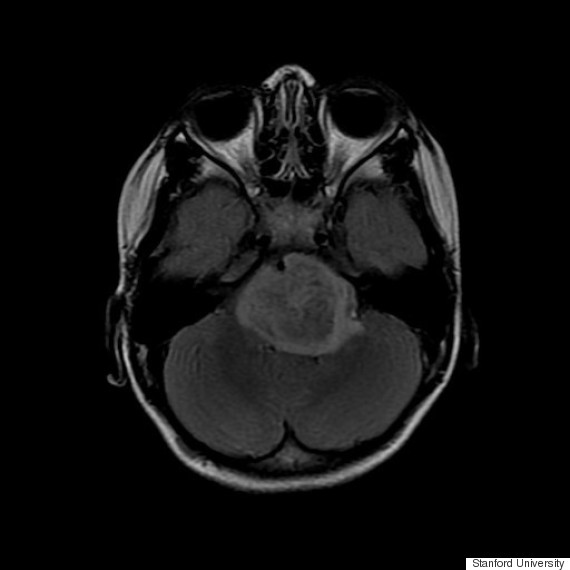Thinking helps fuel the growth of deadly brain tumors, according to a surprising new study from Stanford University School of Medicine.
The study, which was recently published in the journal Cell, found that tumors actually use nerve activity in the cerebral cortex -- i.e., thinking -- to promote their own growth.
The researchers observed high-grade gliomas, a deadly form of tumor that starts in the brain or spinal cord, and makes up roughly 80 percent of malignant brain tumors. Currently, treatment options for high-grade gliomas are very limited.
"Understanding that brain activity fuels glioma growth opens new doors for developing effective therapies," Dr. Michelle Monje, a Stanford neurologist and the study's lead author, told The Huffington Post in an email. "It also teaches us that gliomas hijack processes normally involved in brain plasticity, learning, adaptation."
The study, which was conducted on mice, was the first to show that brain activity can stimulate the growth of brain tumors. This is surprising, given that the function of other organs does not seem to drive tumor growth -- breathing, for instance, does not fuel lung cancer.
How does it work? The researchers identified a protein in the brain, neuroligin-3, that in a healthy brain is involved in the growth of new synapses and the brain's ability to rewire itself. Using optigenetics, the researchers showed that when a tumor is present, the protein promotes the growth of the tumor.
Story continues below photos.
MRI of the tumor (top) and glioma cells growing in a lab dish (bottom).
So is the answer to reduce mental activity? Monje doesn't think so.
"Even the most basic patterns of neuronal activity promoted tumor growth," Monje told HuffPost. "Blocking or silencing neuronal activity, such as would occur in a medically-induced coma, is not a good therapeutic option. I believe that therapeutic opportunity exists in targeting the specific ways that neuronal activity promotes glioma growth, not in reducing brain activity."
However, the findings could pave the way for new treatment options, possibly by interrupting the pathways linking brain activity to tumor growth.
Dr. Tracy Batchelor, a neuro-oncologist at Massachusetts General Hospital who was not involved in the research, told NPR that the discovery "has opened up a window into potential therapeutic interventions."
Support HuffPost
Our 2024 Coverage Needs You
Your Loyalty Means The World To Us
At HuffPost, we believe that everyone needs high-quality journalism, but we understand that not everyone can afford to pay for expensive news subscriptions. That is why we are committed to providing deeply reported, carefully fact-checked news that is freely accessible to everyone.
Whether you come to HuffPost for updates on the 2024 presidential race, hard-hitting investigations into critical issues facing our country today, or trending stories that make you laugh, we appreciate you. The truth is, news costs money to produce, and we are proud that we have never put our stories behind an expensive paywall.
Would you join us to help keep our stories free for all? Your contribution of as little as $2 will go a long way.
Can't afford to donate? Support HuffPost by creating a free account and log in while you read.
As Americans head to the polls in 2024, the very future of our country is at stake. At HuffPost, we believe that a free press is critical to creating well-informed voters. That's why our journalism is free for everyone, even though other newsrooms retreat behind expensive paywalls.
Our journalists will continue to cover the twists and turns during this historic presidential election. With your help, we'll bring you hard-hitting investigations, well-researched analysis and timely takes you can't find elsewhere. Reporting in this current political climate is a responsibility we do not take lightly, and we thank you for your support.
Contribute as little as $2 to keep our news free for all.
Can't afford to donate? Support HuffPost by creating a free account and log in while you read.
Dear HuffPost Reader
Thank you for your past contribution to HuffPost. We are sincerely grateful for readers like you who help us ensure that we can keep our journalism free for everyone.
The stakes are high this year, and our 2024 coverage could use continued support. Would you consider becoming a regular HuffPost contributor?
Dear HuffPost Reader
Thank you for your past contribution to HuffPost. We are sincerely grateful for readers like you who help us ensure that we can keep our journalism free for everyone.
The stakes are high this year, and our 2024 coverage could use continued support. If circumstances have changed since you last contributed, we hope you’ll consider contributing to HuffPost once more.
Already contributed? Log in to hide these messages.



